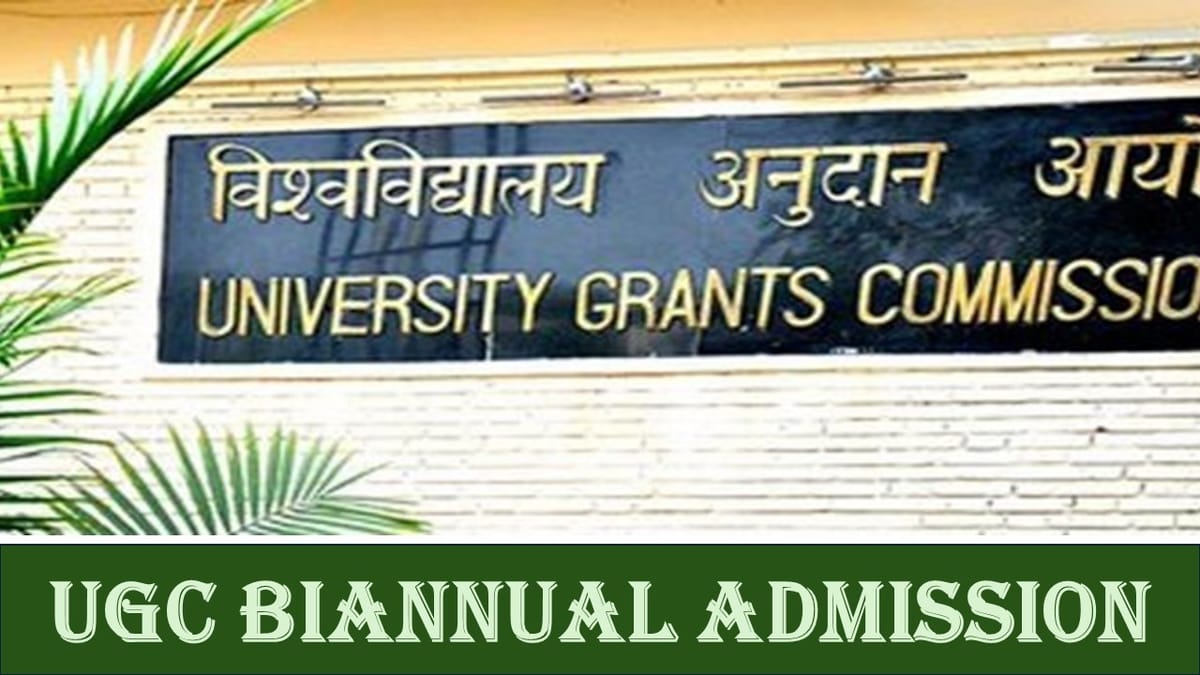Universities can now accept students twice a year, according to UGC Chief Jagadesh Kumar, who revealed this change in response to popular overseas universities.
Shubhra Goswamy | Jun 13, 2024 |

UGC Biannual Admission: Universities are Offering Biannual Admission for the 2024-2025 Session
Universities can now admit students twice a year thanks to the University Grants Commission (UGC). The UGC’s latest judgment implies that students can now be admitted in January/February and in July/August for the upcoming academic session, whereas previous restrictions only permitted admission during July-August.
The universities must now determine whether to offer admissions in both cycles or just one, depending on their faculty and infrastructure, following the UGC’s ruling.
“If Indian universities can offer admission twice a year, it will benefit many students such as those who missed admission to a university in the July-August session due to a delay in the announcement of board results, health issues, or personal reasons,” Kumar explained to PTI.
Indian universities will hold two admission cycles, which are slated for July–August and January–February, starting with the 2024–25 academic year.
It is believed that this major change may alleviate difficulties encountered by students who were not admitted during the first cycle for a variety of reasons, such as delayed board results, personal situations, or health issues. Students can maintain their motivation and quickly gain admission without having to wait a full year by introducing biannual admissions.
The strategy is expected to create a favourable atmosphere for businesses and students alike, allowing the latter to hold twice-yearly campus recruitment events. The dual-admission approach, according to UGC Chief Kumar, will improve graduates’ employment chances and optimize resource allocation inside higher education institutions.
Indian higher education institutions are intended to enhance their foreign relations and student exchanges by aligning with the widely accepted global practice of biannual admissions. This move is expected to boost the schools’ competitiveness in the global arena. In order to guarantee the triumphant execution of the biannual admission system, academic institutions are urged to proficiently plan and allocate their resources, encompassing faculty, infrastructure, and student support services.
Although it is not required, HEIs with the required staff and resources can take advantage of this chance to increase student enrollment and launch cutting-edge programs in newly emerging sectors. UGC Chief Kumar emphasized the value of administrative preparedness, proactive planning, and seamless support systems in order to enable a seamless transition for students enrolled at various times of the year.
In conclusion, the UGC’s approval of biannual admissions signals a paradigm shift in the higher education sector in India. This will give students more flexibility and improve their overall academic experience while also setting Indian HEIs up for success in meeting international standards and bolstering their reputation abroad.
Below are some Frequently Asked Questions related to UGC Biannual Admission:
Q1. Can we take admission to two universities at the same time?
No, you are not allowed to enroll in two separate courses at the same college at the same time. Should you enroll in two courses or colleges, your admission to both will be cancelled.
Q2. What is biannual admission?
According to the UGC, biannual admissions will allow universities to decide on admission cycles based on available infrastructure and faculty.
Q3. How to know if college is UGC approved or not?
To know about college is UGC approved or not students need to visit UGC Website.
Q4. Can I give UGC NET twice a year?
The candidate may select any cycle to take the NET exam in several academic areas.
In case of any Doubt regarding Membership you can mail us at [email protected]
Join Studycafe's WhatsApp Group or Telegram Channel for Latest Updates on Government Job, Sarkari Naukri, Private Jobs, Income Tax, GST, Companies Act, Judgements and CA, CS, ICWA, and MUCH MORE!"